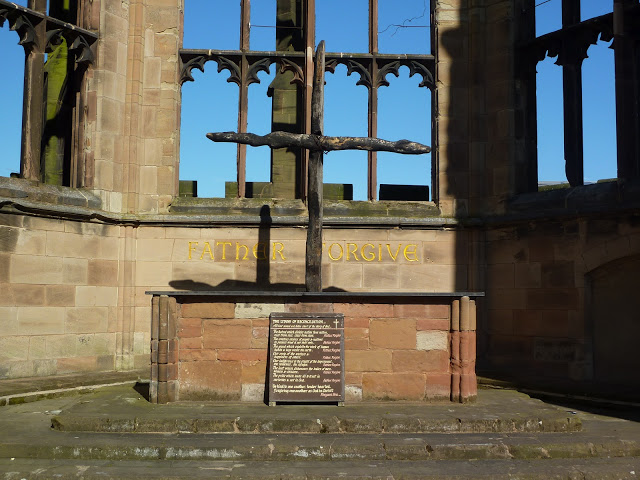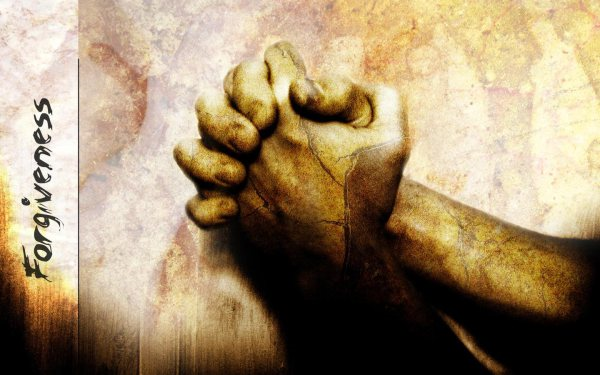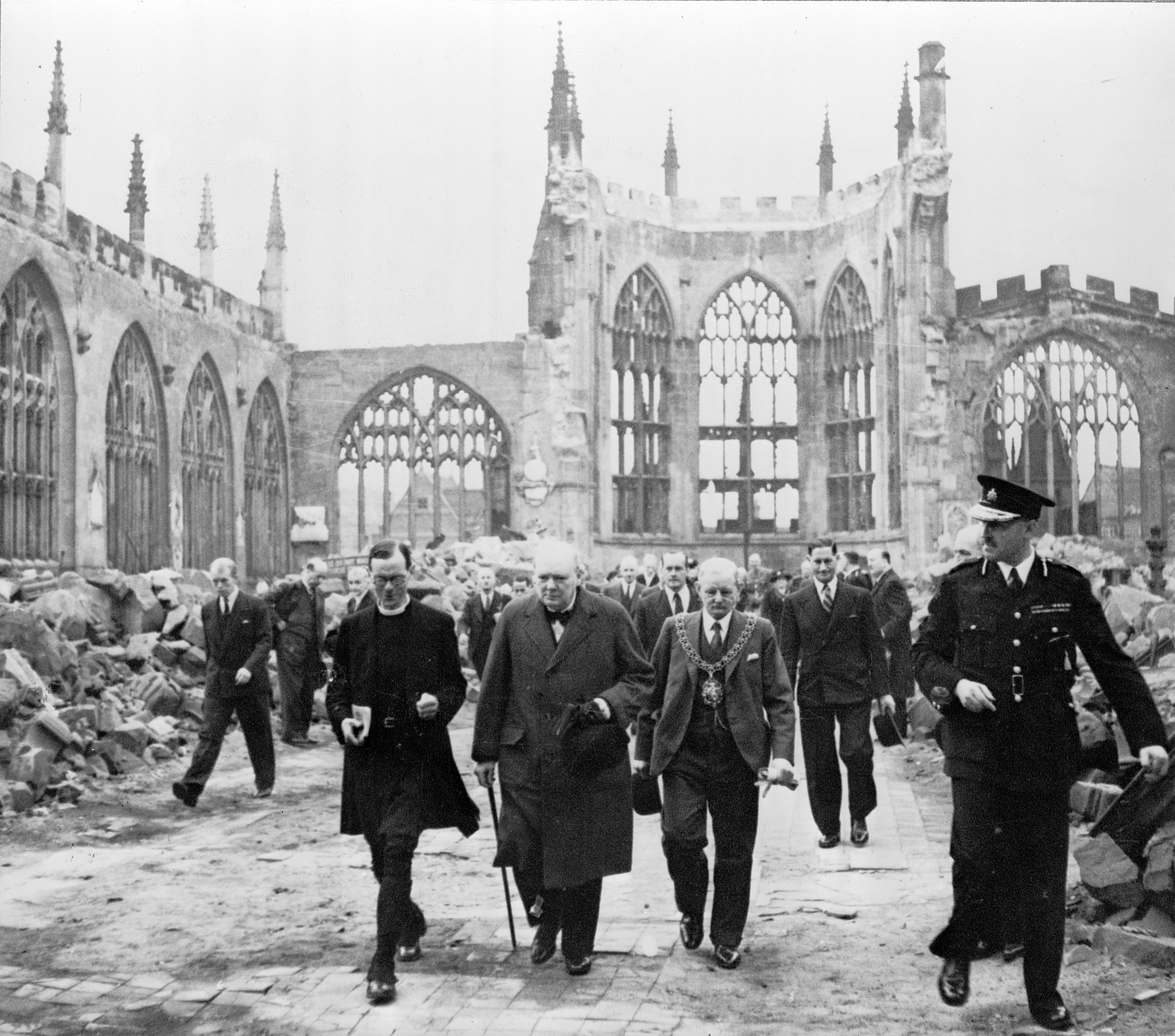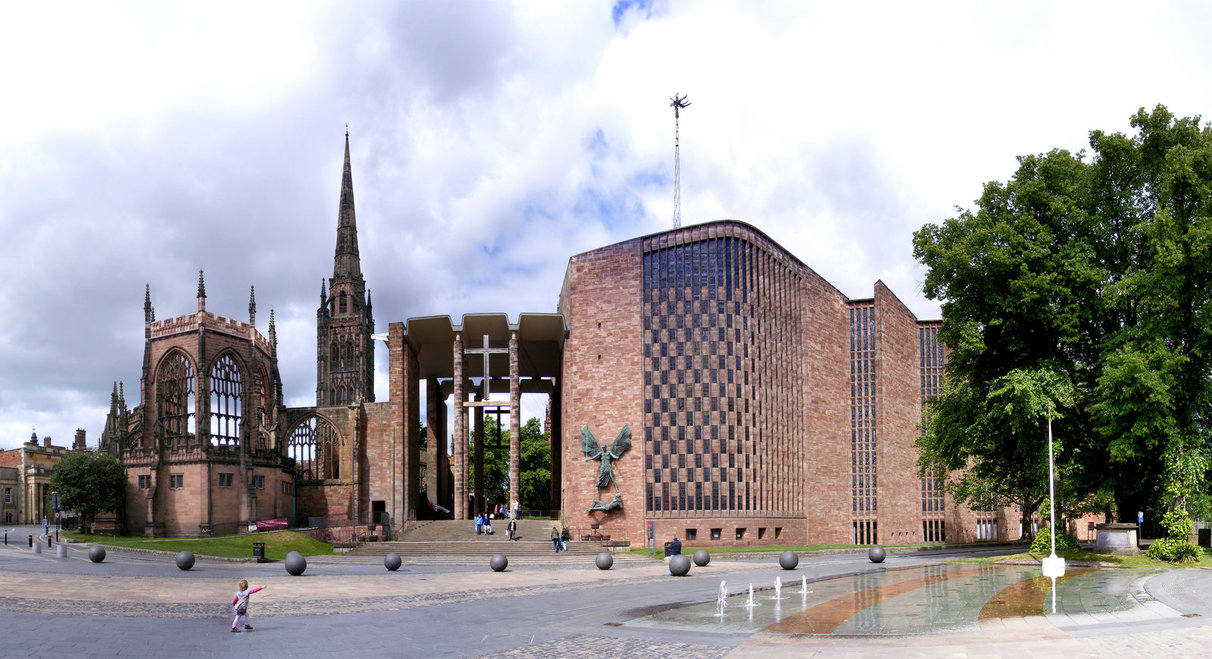Charter for Forgiveness, Reconciliation and the Common Good: The Path to a Just world, Peaceful Fellowship and Healing
Drawing upon values, stories, gems and examples I discovered since my first visit to Coventry Cathedral in November 1973
Prof. Kamran Mofid, Founder, GCGI, and Co-founder and Associate Director, Centre for the Study of Forgiveness and Reconciliation, Coventry University 1996-1999
"Father Forgive": These two words which I discovered at the ruins of Coventry Cathedral in 1973 changed the course of my life.
By his selfless actions, Richard Howard, Provost, Coventry Cathedral, 1933-1958, has bestowed to the world, the most authentic and true Charter of Forgiveness and Reconciliation, the world ever needs.
Reimagining a Better World: A World of Hope and Healing

Altar of Reconciliation in the old Coventry Cathedral
‘Within the Sanctuary is a replica of the charred beams which, on the night of the bombing, fell down from the roof and landed in the shape of a cross. A Cathedral worker called Jock Forbes saw them from the top of the Tower and considered their formation to be a divine signal of hope and resurrection. Behind the Charred Cross and the reconstructed Altar are the words ‘Father Forgive’, written on the East Wall by Provost Richard Howard in 1940.’ -Photo: Anne Mofid
‘Those who seek a just peace seek the common good. On the way of just peace, different disciplines find common ground, contending worldviews see complementary courses of action, and one faith stands in principled solidarity with another.
'Social justice confronts privilege, economic justice confronts wealth, ecological justice confronts consumption, and political justice confronts power itself. Mercy, forgiveness and reconciliation become shared public experiences. The spirit, vocation and process of peace are transformed.’-Statement on the Way of Just Peace, World Council of Churches, 8 November 2013
Living the Dream: Pursuing the Common Good
Those familiar with my writings and also with the GCGI will easily know that in my view nothing is more urgent and important in our world today than striving for the common good. My perspective comes from two broad sources: (1) from over sixty years of living in globalised, diversified communities, in different countries and continents, in the midst of a diverse group of people, from various cultural, ethnic and religious backgrounds; and (2) from thinkers- past and present- who were/are open, fresh and responsive to the human spirit, reflecting deeply on the individual, society, community and the common good. It is fair to say that, their impact on me has been profound. Their wisdom has nourished and nurtured my personal and professional development. For that I am forever grateful.
Given my life journey, I have discovered that, it is in our own best interest as human beings to recognize that our individual and societal wellbeing depends on the wellbeing of everyone else on the planet. We should also rediscover our deepest truth: that we recognize the goodness, love and generosity of the Universe at its current stage of evolutionary development. We should work to foster a spirit of caring and love for others because it is ethically and spiritually right to do so, as well as the only sane policy for saving the planet and saving the human race. Our primary goal must be for being for the global common good, through our Strategy of Generosity, Kindness, Volunteerism, and Service.
In this regard, we just may be in luck. Many around the world are discovering that, we, the people, are capable of dazzlingly complex thought. Moreover, more and more are realizing that, we are not individuals; we are a species, at our best when we work together for the common good. Our collective intelligence is both extraordinary and infinite. We must unite; have dialogue of ideas, peoples, civilisations, philosophies and initiatives, if we truly wish to change the world for the better.
Look All Around You and Pursue the Common Good
“He that seeks the good of the many seeks in consequence his own good.”- St. Thomas Aquinas
“We live in difficult and troubling times, facing unprecedented global challenges in the areas of climate change and ecology, finance and economics, hunger and infectious disease, international relations and cooperation, peace and justice, terrorism and war, armaments and unparalleled violence. It is precisely in times like these – unstable and confusing though they may be – that people everywhere need to keep their eyes on the better side of human nature, the side of love, compassion, trust, gratitude, and empathy, rather than hatred and injustice.
Renewing our faith in the universal character of human values and restoring that which is human to its rightful place at the heart of the globalisation process and of society, whilst directing the decision-making path towards the Common Good must now be at the heart of all we do.
These days it is so easy to become numb, hopeless and helpless to the realities we face. We hear daily, or indeed, hourly, reporting of severe crises covering so many aspects of our lives, they even include our survival on the planet, our Mother Earth. Sometimes these crises seem larger than anything humans have ever seen before, at times so overwhelming.
Wherever we look, we see severe anger, frustration, alienation, despair, hopelessness, helplessness, lies, mistrust, injustice, conflicts and wars, terrorism, suicide bombers, killers everywhere.
So, what is there to be done? How can we come out of all these life-destroying crises? Brexit? Donald Trump? Nationalism? Exceptionalism? Escapism? Populism?...
No. I don’t think so! Anger and angry people have never changed the world for better. Here is a solution from ancient Wisdom: We need harmony, peacefulness, contentment, kindness, generosity, sympathy and empathy, which can only come possible by showing loving kindness, which ultimately is guided by forgiveness and reconciliation, mutual understanding, dialogue, acceptance and respect.
Forgiveness and Reconciliation: The Keystones of Human Values

Artist unknown-Photo: michiganpeaceteam.wordpress.com
"Tell each other the truth, because we all belong to each other in the same body."-St Paul’s letter to the Ephesians
‘Compassion and empathy grow from the seeds of understanding.
'To develop understanding we need to develop our capacity to reflect...
'And to reflect we will need to be able to remember. And to remember we will need to forgive. And to forgive we need to be able to reconcile. Thus, this is the path to transforming conflicts, bringing peace with justice and building a better world: compassion, empathy, reflection, remembrance, forgiveness and reconciliation’
There is no doubt in my mind that, as it has been said “The practice of forgiveness is our most important contribution to the healing of the world.”
There are many parts of our world that need healing today. Let us each take the steps of forgiveness that will create progress in this healing. It starts with each and every one of us.
Remember and Forgive. Reconcile and Let go. Move on and take action in the interest of the common good. Let us together create the world we are imagining and hoping for.
As we have been reminded time and again, the philosophy of the common good offers an alternative vision to our current reality. Certainly peace is at the center of the common good, and forgiveness and reconciliation are the ways to peace in ourselves, our families, and our communities. Pope John Paul II saw this new millennium as a mutual celebration of forgiveness and reconciliation. In his Message for the World Day of Peace, January 1, 1997, the Pope said:
‘Certainly there are many factors which can help restore peace, while safeguarding the demands of justice and human dignity. But no process of peace can ever begin unless an attitude of sincere forgiveness takes root in human hearts. When such forgiveness is lacking, wounds continue to fester, fueling in the younger generation endless resentment, producing a desire for revenge and causing fresh destruction. Offering and accepting forgiveness is the essential condition for making the journey towards authentic and lasting peace.’
Then, 18 years later, in November 25, 2015, Pope Francis, addressing the Kenyan Parliament in Nairobi, notes that:
‘To the extent that our societies experience divisions, whether ethnic, religious or economic, all men and women of good will are called to work for reconciliation and peace, forgiveness and healing. In the work of building a sound democratic order, strengthening cohesion and integration, tolerance and respect for others, the pursuit of the common good must be a primary goal. Experience shows that violence, conflict and terrorism feed on fear, mistrust, and the despair born of poverty and frustration. Ultimately, the struggle against these enemies of peace and prosperity must be carried on by men and women who fearlessly believe in, and bear honest witness to, the great spiritual and political values which inspired the birth of the nation.’
Moreover, when reflecting on the common good, I am often also reminded about the “Beloved Community” as described by Martin Luther King, Jr.:
‘Dr. King’s Beloved Community is a global vision, in which all people can share in the wealth of the earth. In the Beloved Community, poverty, hunger and homelessness will not be tolerated because international standards of human decency will not allow it. Racism and all forms of discrimination, bigotry and prejudice will be replaced by an all-inclusive spirit of sisterhood and brotherhood. In the Beloved Community, international disputes will be resolved by peaceful conflict-resolution and reconciliation of adversaries, instead of military power. Love and trust will triumph over fear and hatred. Peace with justice will prevail over war and military conflict.’ (From The King Center)
Therefore, it is, with this deep conviction, that, I call for dialogue among all stakeholders. My appeal is inspired by a humanistic vision, based on respect for life and human dignity, equal rights, social justice, cultural diversity, international solidarity, and shared responsibility for a sustainable future. These are the fundamentals of our common humanity.
In short, the time is now for: Forgiveness and Reconciliation in Pursuit of the Global Common Good
Coventry City of Peace, Forgiveness and Reconciliation
'Father Forgive’: Coventry Cathedral and my life’s journey of discovery
This is the Story of a Boy from Iran who became a Man in Coventry
Text of a presentation given in St Michael’s House, Coventry Cathedral on 26 July 2017 by Professor Kamran Mofid
“To be a person is to have a story to tell.” — Isak Dinesen
‘Coventry Cathedral is one of the world’s oldest religious-based centres for reconciliation. Following the destruction of the Cathedral in 1940, Provost Howard made a commitment not to revenge, but to forgiveness and reconciliation with those responsible.’
Richard Howard- Provost of Coventry Cathedral 1933-1958: Truly a Man for the Common Good
A Man who Changed the World for the Better

Provost Howard with Sir Winston Churchill in 1942 walking through the ruins of Coventry Cathedral with the remains of the altar in the background.Photo: wikimedia.org
‘The next day, standing in the ruins of the cathedral, the smell of smoke filling his nostrils, the exhaustion of a frantic night of death and devastation weighing on every fiber in his body, Richard Howard wrote the words “Father Forgive.” It is nearly impossible to imagine such an act. He could have taken other approaches to the carnage and probably would have heightened his popularity with the citizens of Coventry if he had. Why not quote a psalm declaring that those who do evil will pay the consequence of their actions? He could have quoted the very first psalm: “The Lord watches over the way of the righteous, but the way of the wicked will perish.” Or Psalm 3: “Deliver me, O my God! For you strike all my enemies on the cheek; you break the teeth of the wicked.” Or Psalm 5: “The boastful will not stand before your eyes; you hate all evildoers…the Lord abhors the bloodthirsty and deceitful.” Or he could have rallied the community behind one pithy line from Psalm 10: “Break the arm of the wicked and evildoers.” (From “The Story of Coventry Cathedral”- Westminster Presbyterian Church)
But, then, he didn’t, “Instead, he turned to the words of Jesus. Each Sunday his community of faith prayed the words that Jesus had taught them to pray together – in the Anglican Church: “Forgive us our trespasses, as we forgive those who trespass against us.” The day after the bombing, standing amid the ashes of what had been for centuries a magnificent place of worship, those words carried greater force than ever before. Richard Howard did not quote an entire passage or even a single line. He boiled the message down to its essence in two words: “Father Forgive.” Putting his hand in the ashes, he wrote these words on the blackened wall of the sanctuary. It did not escape attention that he failed to write “Father Forgive Them,” but only “Father Forgive” meaning: forgive us all. This act “acknowledging our own sins as well as those of the enemy was courageous and controversial, but it was a vision inspired by God. It gave Coventry Cathedral a thumbprint of RECONCILIATION that continues to this day,” and thus, made Coventry the City of Peace, Forgiveness and reconciliation.
We Are Here for the Sake of One Another and we need Hope, and we need storytelling and storytellers

Thanks to the vision of Provost Howard, who did not seek revenge and retribution, but, forgiveness and reconciliation, today the medieval ruins of Coventry Cathedral and the new Cathedral, standing side-by-side, continue to remind us of our human capacity both to destroy and to reach out to our enemies in friendship and reconciliation, so that we may be able to build a better world, a world for the common good. This has been a gift from Coventry to the world. Long may it be so.
Photo: deviantart.net
